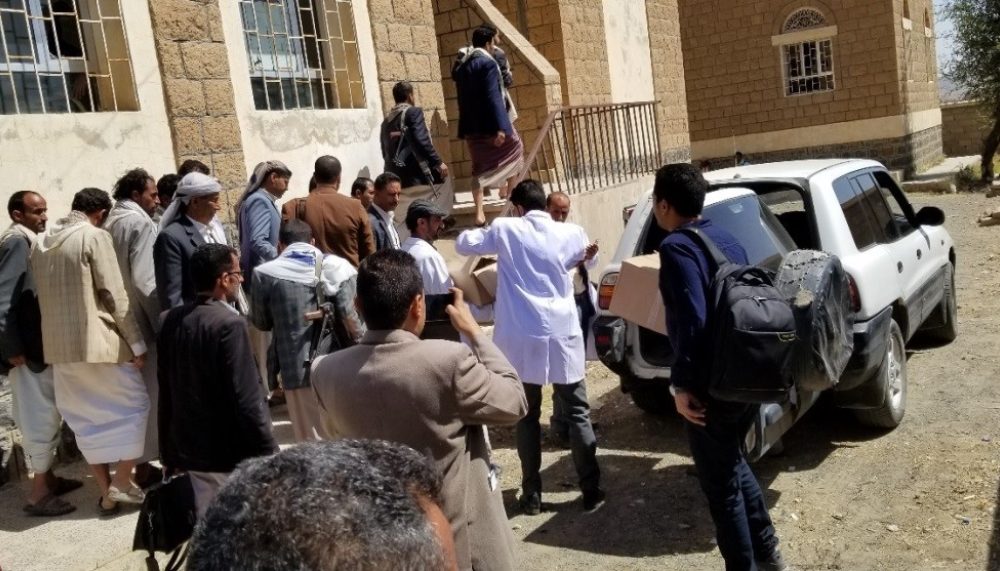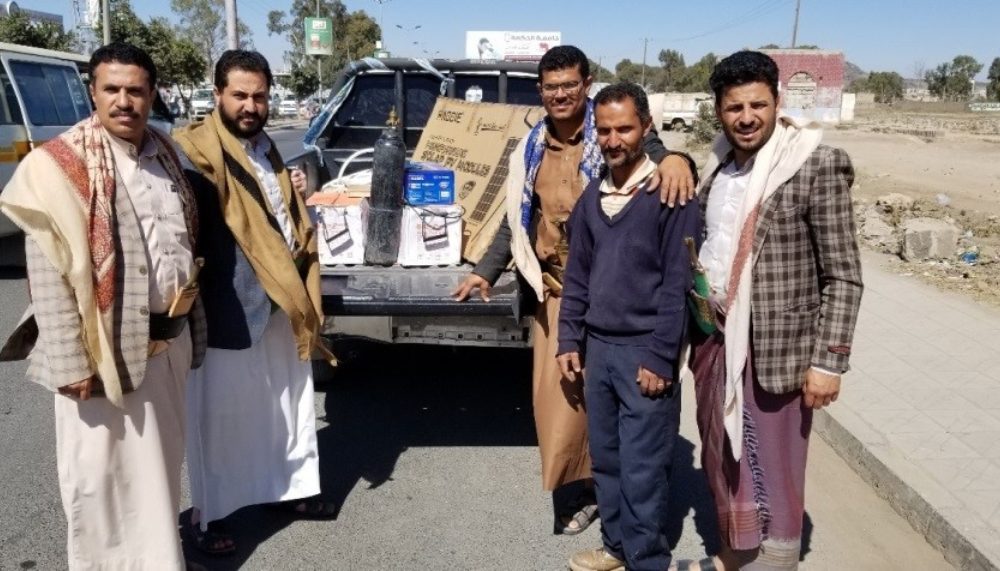BLOG POST | 25 Jul 2023
Locally rooted conflict transformation
How we create dialogue at different levels

Conflicts can be transformed through peace processes at different levels. An example from Yemen.
By Florian Lüdtke
The Russian war of aggression against Ukraine means Europeans are now faced with a reality millions worldwide have faced for centuries: violence and war bring death and unimaginable suffering. When violence happens elsewhere it’s easy to overlook and ignore – a luxury millions of people can’t afford.
In Ethiopia, a brutal and deadly war raged on for two years. It ended only recently, having killed thousands and displaced millions. In Yemen, too, violent conflict is fuelling a humanitarian crisis that receives far too little attention in western media. Sudan, where hundreds of civilians have fallen victim to fighting since April is currently in headlines, but we must actively work to ensure that this conflict is not neglected too.
This article first appeared in diesseits, a two-yearly magazine on humanist ideas, in June 2023. Read the original article on their website.
More than just "no violence”
War does not only bring suffering: it brings into question how we want to live together as human beings. And, in the same way, peace is not merely the absence of violence, but the challenge of defining how we function together as a society. A comprehensive approach to the question: "How does peace work?" includes, besides the obvious rejection of discrimination and violence, a positive concept of peace, that is, strengthening social justice and creating a culture of peace within and between societies.
Peace is closely related to human rights and the basic needs of the population. In humanitarian crises, such as in Lebanon, the attempt to establish dialogue between communities of different faith is driven by the desire to build a foundation for inclusive and democratic structures. The hope is that this will help to end Lebanon’s economic and humanitarian crises in the long term.
A basic prerequisite for peace work is that it’s wanted and driven by those affected, true to the motto: Peace not only for the sake of peace, but for the people who seek it.
Locally rooted conflict transformation
Every conflict is unique, and yet conflict transformation should be based on the fundamental principle that conflict is not inherently bad, but part of living together and a driver for change and progress. Even in the midst of destruction, social and political conflicts can be a force for positive change. For this to happen, parties in conflict must learn how to deal with each other constructively and without violence. They must work together to find ways to address the grievances and problems that create distance and division. Peacebuilding does not aim to abolish conflicts, but to provide impulse on how to transform violent conflicts into sustainable solutions. This is why the Berghof Foundation speaks not only of "creating peace" but also of "transforming conflict".
Only an approach rooted in local communities that reaches policymakers and national and international decision-makers promises long-term success.
We often imagine a negotiating table when we think of peace. This is only partly true. It’s not enough to talk to political decision-makers alone – only an approach rooted in local communities that reaches policymakers and national and international decision-makers promises long-term success.
This is evident in the case of Yemen. There, the Berghof Foundation not only works with conflict parties and decision-makers on the national level, but also at the local level to support local governance and national efforts. For example, Berghof worked in Al-Absiyya, a small village in the mountainous central highlands of Yemen where new local health centre was closed in 2014 due to conflict in the community. Local peace work was able to initiate constructive talks between the opposing groups which led to a reopening of the hospital. How exactly does such a process work?

Mediation in Yemen
Yemen is in the midst of an eight-year long civil war and is the site of the world's worst humanitarian crisis. With famine threatening hundreds of thousands of lives, 21.6 million Yemenis – 11 million of them children – are in need of humanitarian assistance. In the midst of the conflict between Al-Ansar (Houthi) rebels and the internationally recognised government – further complicated by regional actors such as Iran or Saudi Arabia – Yemenis must prioritise access to basic amenities over national politics.
The Al-Absiyya health centre was closed after a dispute between two pharmacy owners escalated. To resolve the deadlock, an Advisory Committee intervened. This committee was founded by the Political Development Forum, a close Yemeni partner organisation of the Berghof Foundation. It consists of politicians and representatives of civil society. Its role is to mediate local conflict and ensure local concerns are heard at the governorate level. In this specific case, a new group was formed to mediate.
The group initiated a mediation process in which both parties to the conflict – the villagers and the management of the health centre – were invited. Eventually a solution was found: The district health office changed the administrative staff of the health centre involved in the conflict and opened a public pharmacy to resolve the original point of contention.
Peace processes must take place at several levels in parallel. This serves to complement negotiations at the national level and establish important role models within local communities.
A success story: In October 2018, the health centre was finally able to reopen and serve the 6,000 people living in the region. In the first three months after opening, more than 1,200 patients were treated.
Creating role models and addressing crises at an early stage
This positive example triggered a significant response in the region. The Advisory Committee received numerous requests from neighbouring districts to resolve conflicts. With the support of the committee, several other local health centres were reopened. This demonstrates how important it is for several peace processes to take place in parallel. In addition to saving lives and creating role models, local processes complement state-level negotiations which are often lengthy and detached from the immediate needs of the population. Multi-level peace agreements play an important role in stabilisation because national agreements depend on local support and can easily be undermined by local conflict.
The urgency of peace work has, unfortunately, increased in recent years. The effects of climate change will pose major challenges to local communities like those in Al-Absiyya. Climate change will intensify existing conflicts or even create new ones – especially in places where resources such as water and arable land are increasingly scarce. However, shared concerns about the impacts of climate change can also be a starting point for bringing conflicting parties into dialogue. Peacebuilders must monitor local needs to ensure so-called ‘climate security’ and societal adaptation. This, of course, requires scientific expertise. Peace work therefore goes hand in hand with environmental research as well as education – so that next generations can better understand the various interlinkages, threats can be pre-empted and the basic values of peace work are adapted and applied as early as possible.
Media contact
You can reach the press team at:
+49 (0) 177 7052758
email hidden; JavaScript is required


